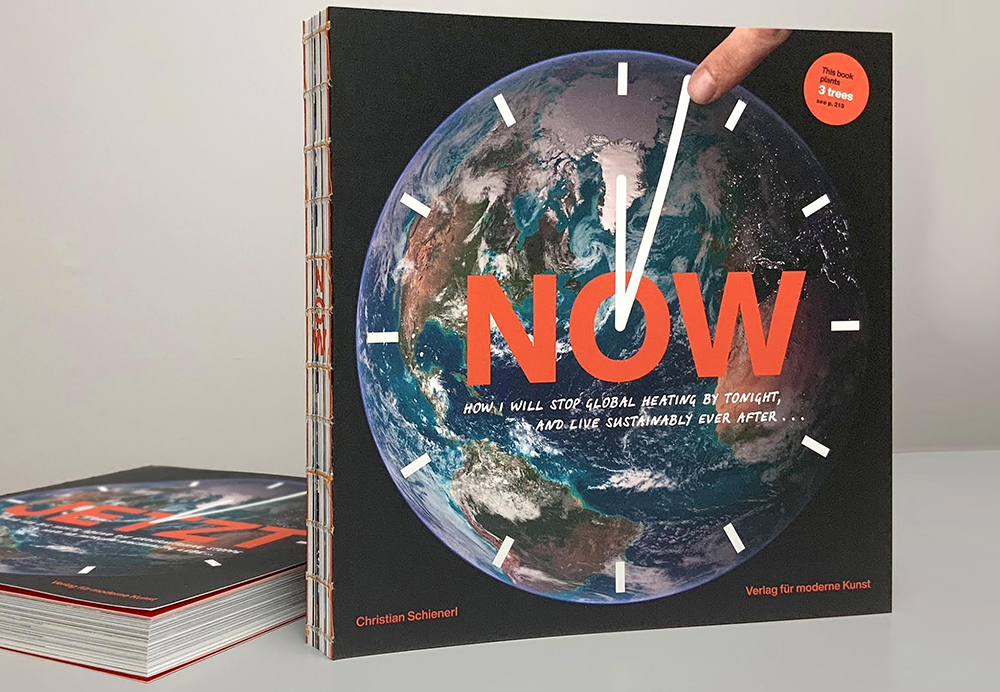Today we present you with a thought-provoking book. NOW by Christian Schienerl is easily understandable, clearly written, and offers a refreshing way to dive into the scientific principles, causes, and effects of the climate crisis. Following the trail of the author through his everyday life, you discover the gigantic ecological footprints we all leave – and learn what you can do to reduce them.
As a freelance book designer, Christian Schienerl has designed countless publications for international publishing houses and museums, with NOW being his first own publication at Verlag für moderne Kunst.
The book cover design clearly underlines the urgency of doing something against the advancement of global warming. It’s 3 past 12 – so the clock is ticking! NOW, not tomorrow, and not through others, we should all start to change our own lifestyle
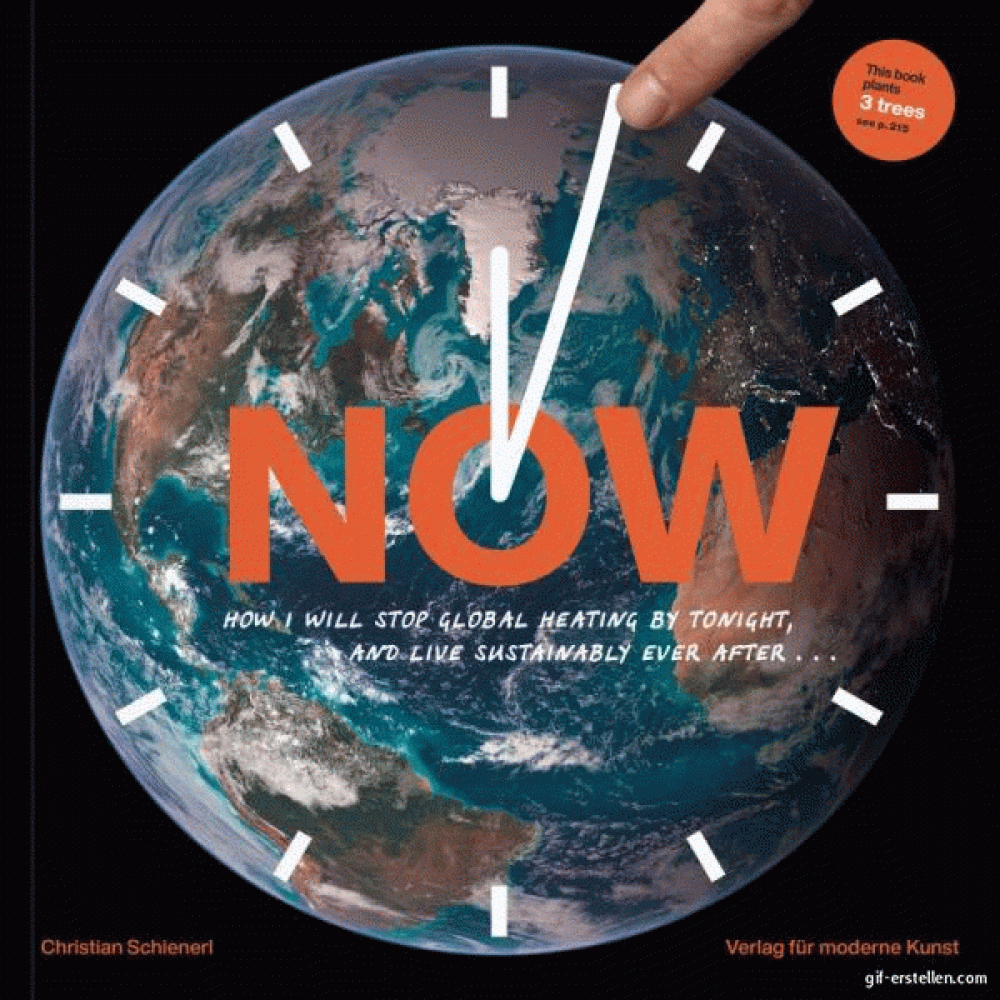
Even if individual lifestyle changes alone are not enough to bring about such a comprehensive turnaround as is described necessary by scientists, each individual rethinking their actions is important. There are only a few years time left to massively reduce global greenhouse gas emissions before the natural-gas limit rises 1.5–2°C. And if the reduction is not successful, we will lose all control over the development of the climate and our living planet.
But for the first time, many of us are now united in a fight for a better world for everyone on one planet, knowing that solutions to the crisis are available, but they must be put into practice NOW.
The author of NOW, Christian Schienerl on his book:
“In the book, I am trying to find out what my own, very personal contribution to the climate crisis is. To do this, I look at what I do on a completely normal day: how I heat my apartment and how I use other energy; what I eat all day long; which consumer goods I buy – e.g. my new smartphone; how I move around, my mobility; and what greenhouse gas emissions result from all of this. I take these everyday things and activities as an opportunity to shed light on the various topics and aspects that play a role in the climate crisis and to enrich them with figures, data, and facts. But I do that as a layman, as a normal consumer so to speak, and because I approach the matter naively and inquisitive, the information is conveyed very easily, almost like in a “school book for Fridays” (with which I am clearly referring to Fridays for Future). Through my own naive approach and gaze, the reader can understand my learning path and the more complex scientific findings”.
“Unfortunately – a spoiler alert! – my attempt, mentioned in the subtitle, to stop global warming until the evening through simple lifestyle changes and to achieve a sustainable everyday life fails. I manage to reduce my personal ecological footprint to around 60% of the average Austrian. Not bad at all, I would say, especially since I see these modest restrictions as enrichment and improvement of my quality of life rather than as renunciation and self-mortification.”
I manage to reduce my personal ecological footprint to around 60% of the average Austrian. Not bad at all, I would say, especially since I see these modest restrictions as enrichment and improvement of my quality of life rather than as renunciation and self-mortification.
“But, my ecological footprint is still almost twice as large as a sustainable one would be. And here lies the conundrum: I personally, as an individual, no longer have any influence on this twice as high consumption of resources – it is socially or “systemically determined”. In order to get further here, it is necessary to go far beyond individual responsibility as a consumer and collectively, in civil society protest, to force political and economic actors to deal with their own responsibility.” – Christian Schienerl states.
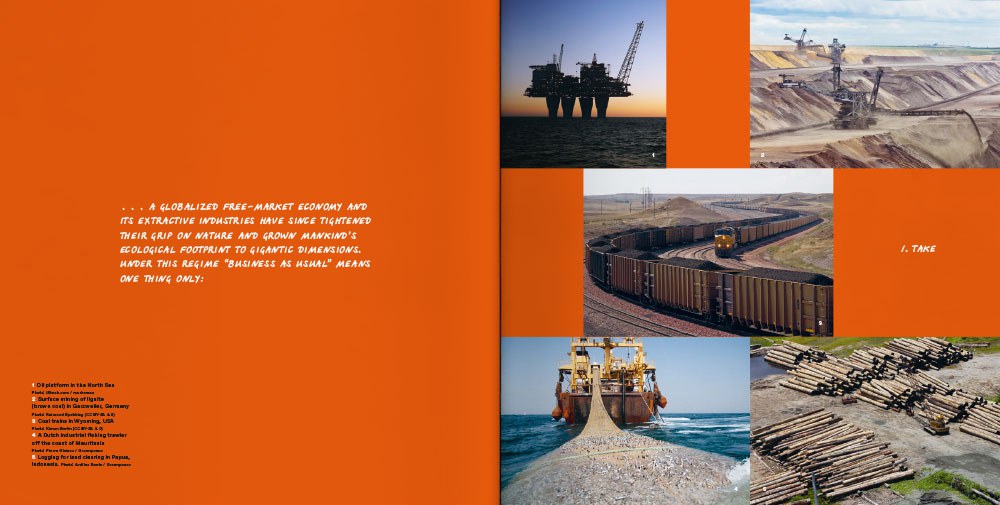
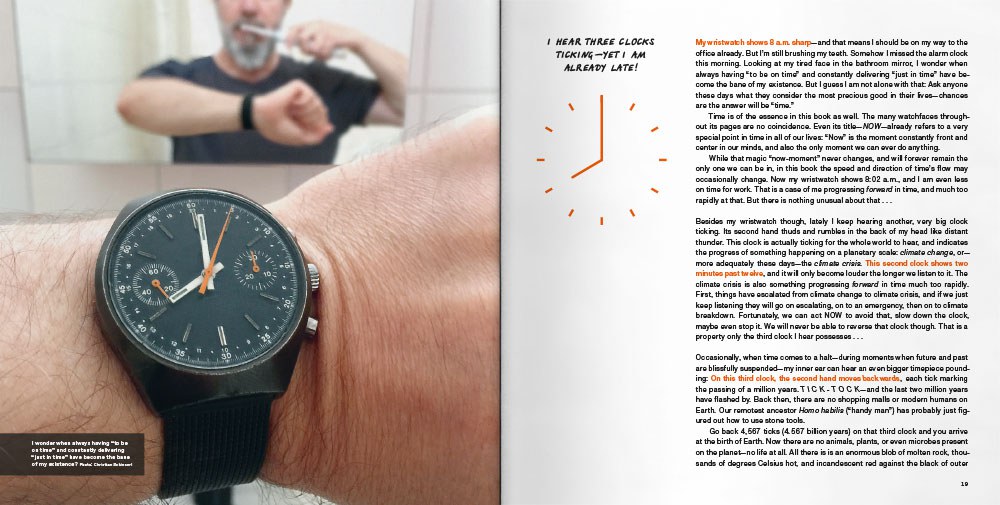
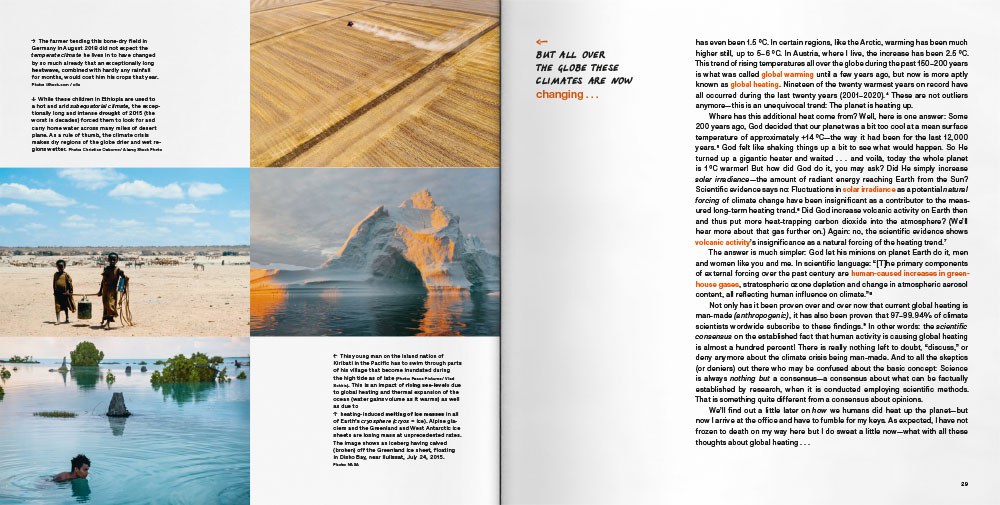
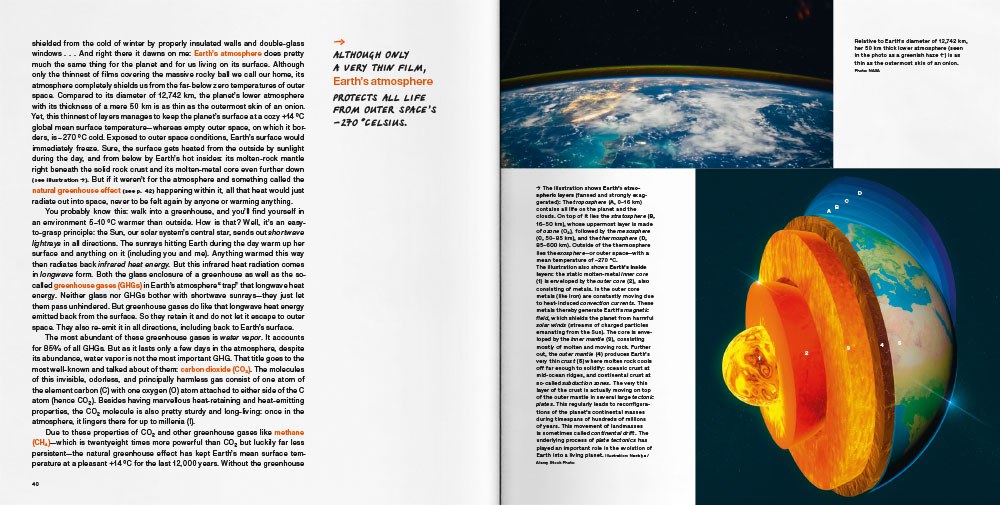
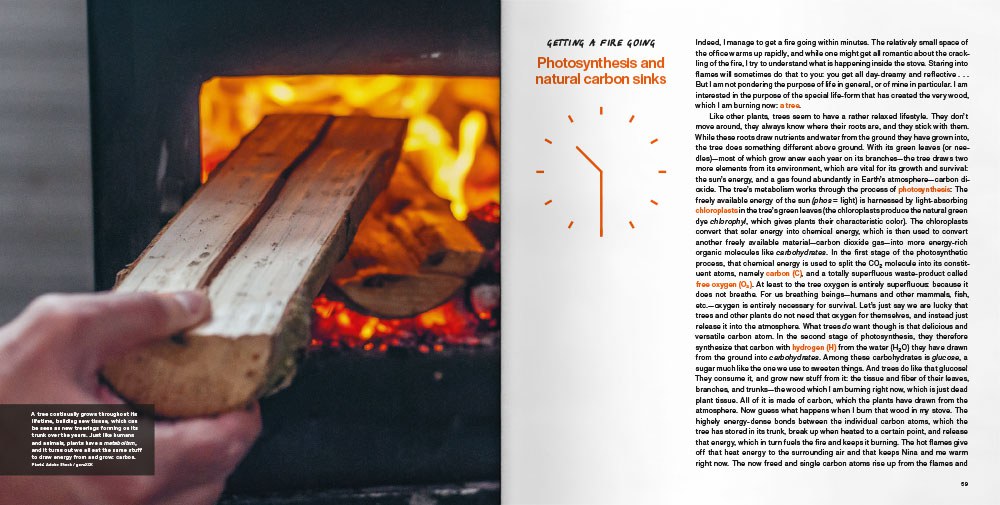
“Our democratic states have an obligation to provide services of general interest and to guarantee the security of their citizens. It is also very important and increasingly urgent to protect ourselves from the threat posed by a climate catastrophe and, specifically, by increasingly frequent extreme weather events. Business enterprises also by no means operate in a vacuum or on so-called “free markets”, which are simply neutral.”
“But at this point, we as NOW – as the citizens on planet earth, who only allow so and so many resources to be mined and only allow so much pollution and deterioration before it fails us, and the many ecosystem services, on which we depend deeply will no longer be taken for granted. NOW calls, on the one hand, to “sweep in front of our own door”, to hold politicians and businesses responsible, and to bear in mind their responsibility towards all of us and our shared common goods.” – Christian Schienerl urges.
As a cradle-to-cradle certified book, NOW is printed on C2C certified Munken Polar paper at C2C certified gugler* print
What inspires us about this book is not only the content but also Christian Schienerl’s holistic approach to the topic. The book is Cradle-to-Cradle (C2C) certified because it used a C2C certified paper, namely Munken Polar, and was printed by a C2C certified printer, gugler* print. C2C is a globally recognized standard for environmentally-friendly production, fair working conditions, safe and sustainable products, and a healthy circular economy.
And that’s not all, for every copy sold, the Trillion Tree Campaign is supported and 3 trees are planted.
Buy your own copy at NOW. How I Will Stop Global Heating… | VFMK Verlag für moderne Kunst
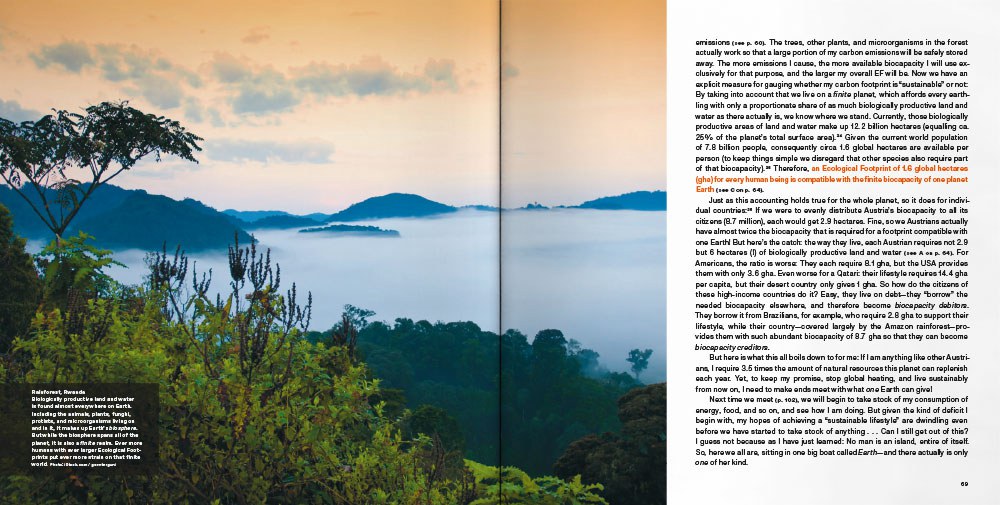
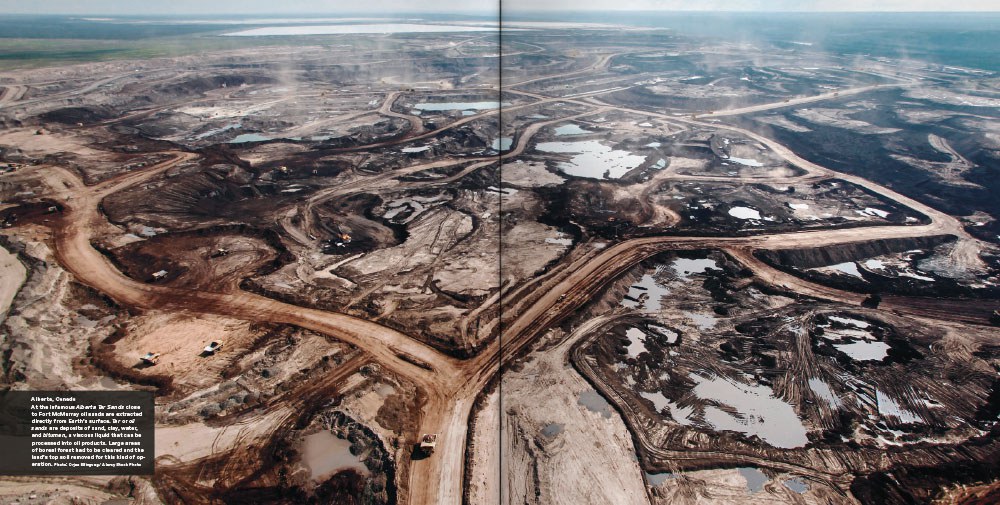
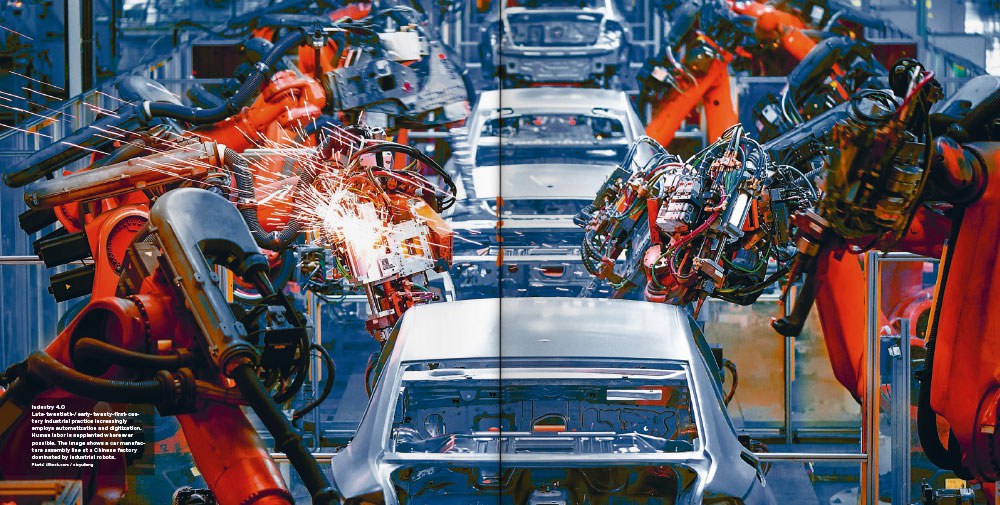
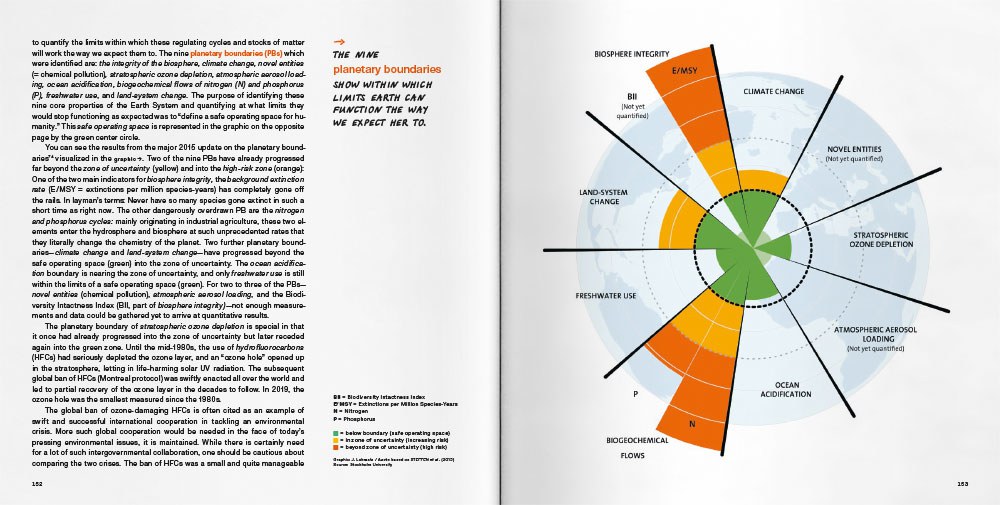
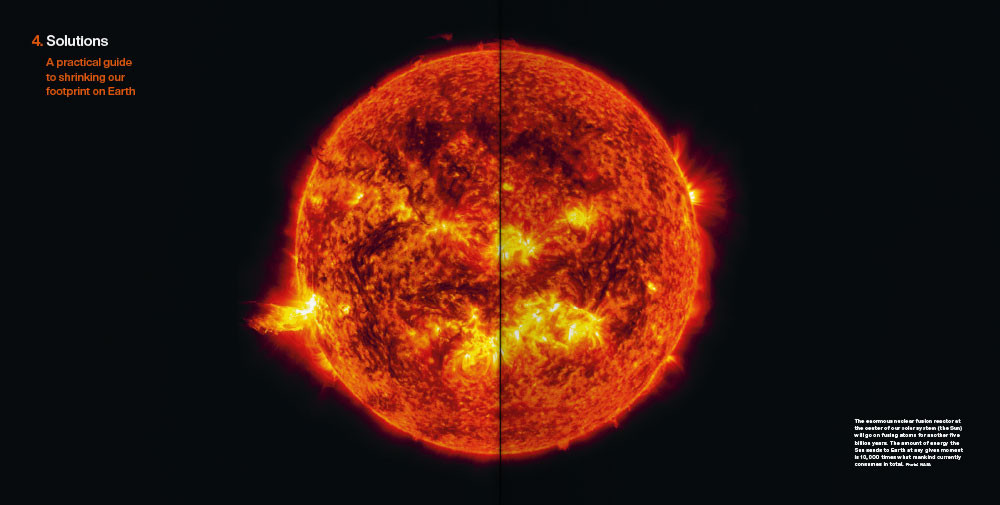
© SCHIENERL D/AD

